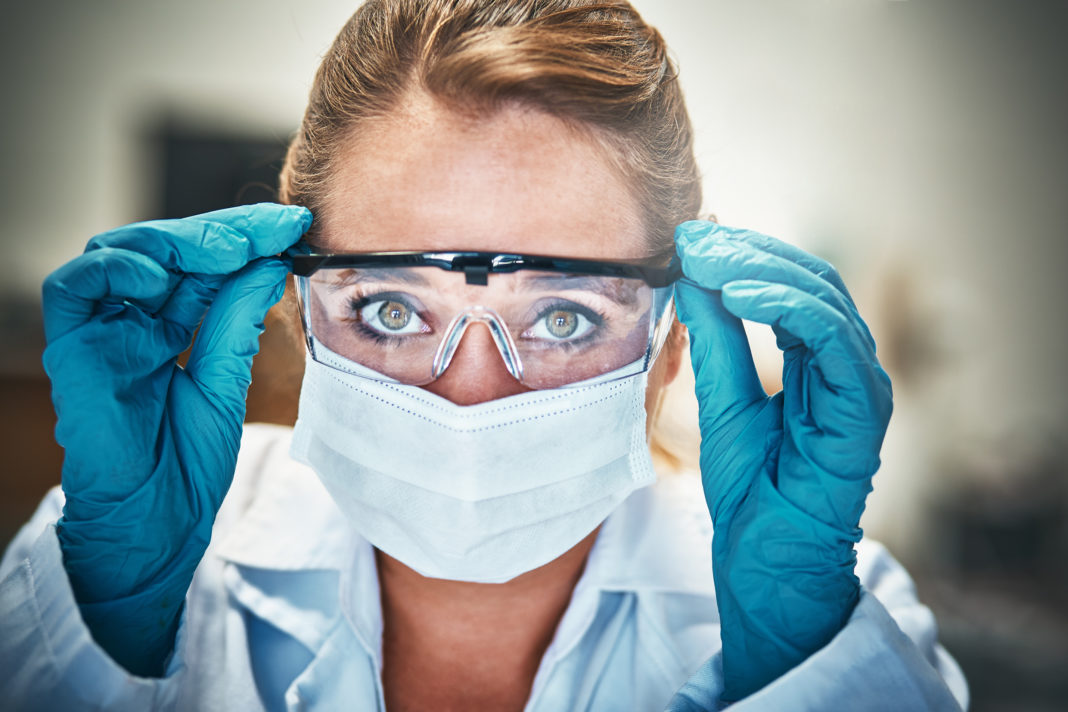Candidate: SNG001
Type: Inhaled formulation of interferon beta-1a
Status: Synairgen said July 20 that SNG001 generated positive results in the Phase II SG016 trial (NCT04385095), which assessed the inhaled drug in hospitalized COVID-19 patients. The double-blind, placebo-controlled trial enrolled 220 patients (120 studied at home, 100 in hospitals).
The odds of developing severe COVID-19—requiring ventilation or resulting in death during the treatment period (Days 1–16) were shown to be reduced by 79% for patients receiving SNG001 compared to patients receiving placebo. During the treatment period, the company reported, patients who received SNG001 were also more than twice as likely to recover (defined as “no limitation of activities” or “no clinical or virological evidence of infection”) compared to placebo patients.
Breathlessness was markedly reduced in patients who received SNG001 compared to those receiving placebo, the company said, adding that three participants (6%) died after being randomized to placebo, compared with no deaths among SNG001 patients.
Also, in patients with more severe disease at time of admission, such as those who required treatment with supplemental oxygen, SNG001 treatment increased the likelihood of hospital discharge during the study, although the difference was not statistically significant. The median time to discharge was six days for patients treated with SNG001 and nine days for those receiving placebo. In addition, patients treated with SNG001 appeared to be more than twice as likely to have recovered by the end of the treatment period, although the data did not reach statistical significance. By day 28, however, patients receiving SNG001 treatment had statistically significantly better odds of recovery, Synairgen said.
“Our inhaled treatment of giving high local concentrations of interferon beta, a naturally occurring antiviral protein, restores the lung’s ability to neutralize the virus, or any mutation of the virus or co-infection with another respiratory virus such as influenza or RSV, as could be encountered in the winter if there is a resurgence of COVID-19,” stated professor Stephen Holgate CBE, MBBS, MD, DSc, Medical Research Council Clinical Professor of Immunopharmacology at the University of Southampton and cofounder of Synairgen.
Synairgen, a University of Southampton spinout, received approval in March from the U.K.’s Medicines and Healthcare products Regulatory Agency (MHRA) and Health Research Authority (HRA) to study SNG001 in COVID-19 patients through clinical trials.
In February 2018, Synairgen dosed the first patient in a Phase II trial evaluating inhaled SNG001 in chronic obstructive pulmonary disease (COPD).
COVID-19: 200 Candidates and Counting
To navigate through the >200 potential therapeutic and vaccine options for COVID-19, GEN has grouped the candidates into four broad categories based on their developmental and (where applicable) clinical progress:
● FRONT RUNNER – the most promising therapeutics/vaccines based on clinical progress, favorable data or both.
● DEFINITELY MAYBE – earlier phases with promising partners, or more advanced candidates in development that have generated uneven data.
● KEEPING AN EYE ON… – interesting technology, attracting notable partners, or both, but preliminary data.
● TOO SOON TO TELL – longshots pending additional experimental and/or clinical data.
GEN has also tagged the most common treatment types:
● ANTIVIRAL
● VAX
● ANTIBODY
● RNA







